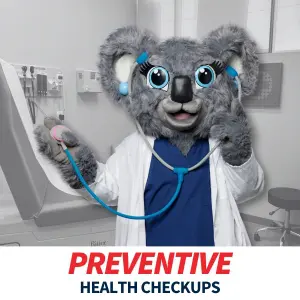October Is Breast Cancer Awareness Month
 If the current global pandemic has taught us anything, it’s the importance of taking care of our health. While the focus has been on the coronavirus, we must not ignore other dangerous diseases, like breast cancer. This October, we want to recognize Breast Cancer Awareness Month to help bring attention back to this disease in an effort to help prevent or encourage early diagnosis.
If the current global pandemic has taught us anything, it’s the importance of taking care of our health. While the focus has been on the coronavirus, we must not ignore other dangerous diseases, like breast cancer. This October, we want to recognize Breast Cancer Awareness Month to help bring attention back to this disease in an effort to help prevent or encourage early diagnosis.
Breast Cancer Statistics
Breast cancer continues to be one of the most common cancers for women around the world. According to the National Breast Cancer Foundation, while new cases and death rates have been trending down, an estimated one in eight women in the United States will develop breast cancer at some point in her lifetime. In 2020 alone, it is estimated that 276,480 women in the U.S. will be newly diagnosed with invasive breast cancer, and 48,530 will be diagnosed with non-invasive breast cancer. Unfortunately, roughly 42,170 of those women will die. While the majority of cases are in women, it is possible for men to develop breast cancer, as well. This year, an estimated 2,620 men in the U.S. will be diagnosed with breast cancer, and 520 will die as a result.
Through early detection, 64% of breast cancer cases are diagnosed when they are at a localized stage, meaning they are showing no indications they’ve spread elsewhere in the body. At this stage, the 5-year survival rate is at 99%.
What Causes Breast Cancer?
Breast cancer develops when there is damaged DNA within a healthy cell that becomes mutated. In many cases, it’s impossible to know what may have caused someone to develop breast cancer. However, there are some risk factors that may result in one person being more likely to develop the disease than others. Many environmental risk factors are avoidable, including:
- Participating in little to no physical activity
- Consuming a poor diet high in saturated fat and low in fruits and vegetables
- Being overweight or obese
- Frequent alcohol consumption
- Having radiation therapy to the chest prior to age 30
- Combined Hormone Replacement Therapy (HRT) as prescribed for menopause
Unfortunately, some individuals have genetic risk factors that increase the risk of developing breast cancer, and are unavoidable. These factors include:
- Gender – women are roughly 100 times more likely to develop breast cancer than men
- Age – two out of three women are diagnosed after the age of 55
- Race – more Caucasian women are diagnosed than those of other races
- Family history & genetics – having a mother, sister, father, or child diagnosed with breast or ovarian cancer increases your risk in the future, particularly if they were diagnosed before age 50.
- Personal health history – a previous diagnosis in one breast increases the risk of developing breast cancer in the other breast in the future.
- Menstrual & reproductive history – experiencing early menstruation prior to age 12, late menopause after age 55, having your first child at an older age, or never given birth at all may increase your risk.
- Certain genome changes – mutations in specific genes like BRCA1 and BRCA2 may increase your risk. This can be found via genetic test which is recommended if you have a family history of breast cancer, as these mutations can be passed onto children.
- Having dense breast tissue – this can increase your risk and make lumps harder to detect.
If you have any of these genetic risk factors, be sure to discuss with your doctor to determine what screenings you should have performed, or what you can do to lower your potential risk.
Breast Cancer Prevention & Early Detection
Early detection is vital for the best survival rates. According to the American Cancer Society, diagnosing breast cancer when it is still in a localized stage provides individuals with a 5-year survival rate of 99%. This early detection can be done through monthly breast self-exams and regular exams and mammograms with your physician.
If it has been some time since you have visited your physician for a regular exam, or you have concerns you may be at risk of developing breast cancer, visit one of your convenient Midwest Express Clinic locations today. We offer many comprehensive women’s health services, as well as lab testing and more. And, in celebration of Breast Cancer Awareness Month, be sure to encourage the loved ones in your life to examine their own potential risk factors, as well.




